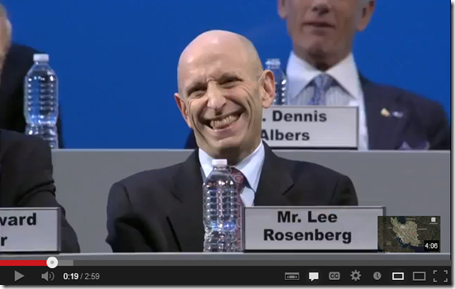
In previous posts, I’ve confessed to a weakness for “speculative documentaries.” You know, Bigfoot, the Loch Ness Monster, U.F.O’s, and all their friends in the crypto-zoologicaspere (I should copyright that term!).
One program holds a special place in my heart, however: Ancient Aliens.
As I’ve shared previously, this program performs a dizzying array of death-defying rhetorical shenanigans, and is so utterly removed from the logic that binds the rest of us to reality that I thoroughly enjoy watching it.
At its heart though, I think my love of the show’s antics is a love of rhetoric. I watch the crimes that Mr. Giorgio and company rhetorically perform against humanity and, like Superman, my argumentative mind springs into action. “This would be great to show my students!” I think aloud.
Uh oh. I think you see where this is going.
Unlike a lot of literature types out there, I personally don’t mind teaching freshman composition because, to me, the construction and expression of arguments are a vital part of what makes us beautifully and insufferably human – I believe rhet/comp to be central to any liberal arts education. With those lofty goals, the argumentative gymnastics of a conspiracy-ridden mind are gold, Jerry. Gold!
I give you the following video, for which I must thank my friend, Stephen:
Step One: What’s Wrong With This Picture?
I showed this video to my classes today, after confessing my love for conspiratorial narratives. I told them about the all-encompassing grand narrative of the Ancient Alien types – how the Annunaki supposedly came down and created human beings to mine Gold for them et cetera. (Here I should point out that this video is not connected to the program Ancient Aliens – it simply shares the same mythos). Then basically anything that ever happened after that is part of the alien conspiracy. The whole bit. I admitted some shame in knowing as much as I do about the “theory,” then I asked them to watch the above video and take note of some of its particulars to specifically argue against. The key phrase was “specific.” I stressed that they were to identify concrete formal and rhetorical structures that they could then analyze for their function and overall effect.
The conversations we had were excellent. Several students pointed out the problems with zooms that pushed beyond what pixel limits of the original video would allow. Still others argued that the abundance of rhetorical questions simply plants ideas in the views head and tempts them into making false assumptions. Others pointed out that the computer generated narrator-voice makes attribution impossible and that the script could have been written by a ten-year-old boy and we would never know.
One canny student observed that the application of a video filter that resembles a heat-sensing camera falsely suggests that the poor secret service agent is a reptilian. She noted that the heat sensor would have had to have been a part of the original video for that gimmick to work.
The Importance of Being Specific
I was proud of my rhetoricians in training. They noticed many things that I did not, and we had a series of terrific conversations about writing. Most importantly, I tried to stress that when they are engaged in argumentative writing, it really helps to have something to, you know, write about. By not simply relying on their initial, general impressions – “Are these people serious?” “Don’t they know that they sound crazy?” – they made it possible to have a productive conversation. In short, identifying concrete things that present problems gives the writer something to write about. I then urged them to take the same approach with their current research projects.
My Personal Response to the Video: Aliens? Maybe. Anti-Semitism? Yep.
Before moving on to the next topic of the day, I offered my own response to the video, re-enforcing the fact that my response was only really possible after identifying specific, problematic elements in the video’s argument. Now I’ll share it with the internet.
This video is a raging, syphilitic case of anti-Semitism.
First of all, whenever I hear the term “Zionist cabal,” my Jew-hater radar detector springs into action. Check. Second, after laying down its “Zionist cabal” card, the video ever so un-subtly offers the following image of Lee Rosenberg, President of AIPAC:

I have no doubt that the video’s authors found Mr. Rosenberg’s most awkward moment so they could juxtapose it directly against the image that immediately follows; that of their “shapeshifting alien.”

The argument is clear. The video exploits its deceptive rhetorical tricks to suggest (without actually saying outright) that not only is there a Jewish conspiracy, but the Jews themselves are more closely aligned with the aliens than with the humans. This, of course, goes back to anti-Semitic rhetoric that spans the ages. The oft-debunked Protocols of the Elders of Zion is a model for this type of deception and, incredibly, there are still people who believe in its truthfulness, as I’m sure there are people who believe the claims of this 3 minute video.
This video is not simply mindless stupidity, it is ugly hate speech packaged for weak-minded conspiracy theorists. It is dangerous if we don’t pay attention to how it makes its arguments.
Oh, and in the wake of the Boston Marathon bombings, look at this.
Same as it ever was.
At any rate, I used this as an example of the importance of paying attention. Passive consumers of information are prey to dangerous minds, and may become dangerous themselves. Active readers have the benefit of an insight that is not only advantageous, but also a moral obligation.
English class may not always be thrilling, but the lessons we’re trying to teach you are important.
Unless, of course, I too am one of the Annunaki, sent here to confuse my students and keep my race in power.
I am bald, you know.


















